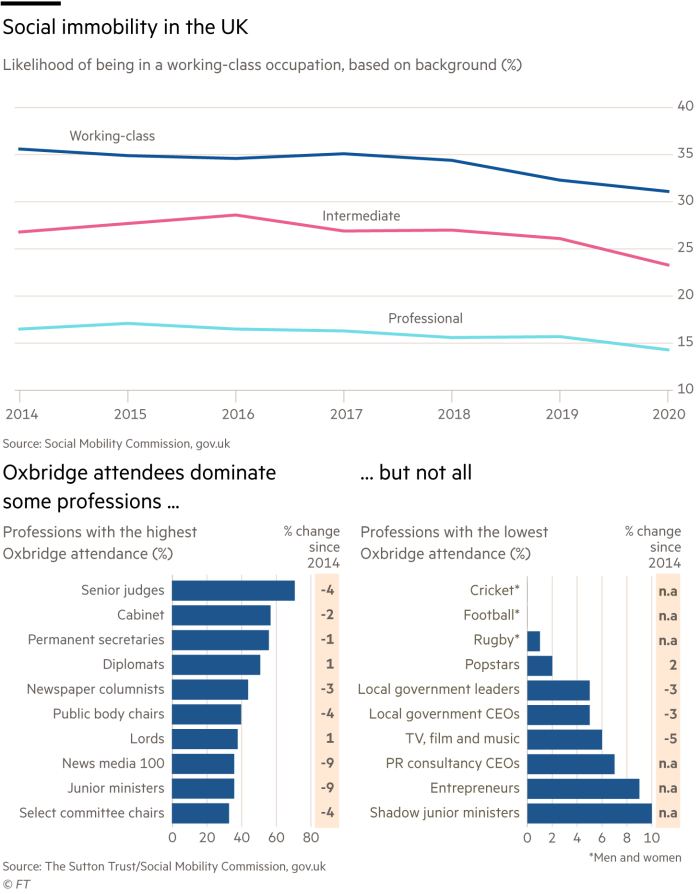Britain’s public broadcaster wants its workforce to reflect the population it serves. By 2028 at the latest, the BBC hopes a quarter of its workforce — currently numbering 20,300 — will be from “a lower socio-economic background”.
What does that mean? Brits spot class signifiers as keenly as police sniffer dogs locate loosely-bagged marijuana. Accents, drinking habits and clothes are among the giveaways. A subset of UK TV programming represents lower-income Brits as teenage mums, feckless dads and thirtysomething grandmothers.
The BBC’s approach is more systematic. It focuses on education — state school or fee paying — eligibility for free school meals and parental occupation. The latter benchmark, used by the Social Mobility Commission, will be the main metric for the new quota.

All are imperfect measures. Middle class Brits pay steeply for homes in the catchment area of good state schools. One recent survey, by law firm Simpson Millar, put that premium at 50 per cent above the national average. Additional costs may include exam tutors, extracurricular Mandarin classes and holidays spent trawling Florentine galleries.
Occupation, too, can be a slippery concept. Butchers, bakers and candlestick makers might seem working class. But these days, exponents include hip artisans with arts degrees and posh accents. Builders who left school at 16 usually earn more than lecturers with PhDs.
Data from the BBC itself illustrate the vagaries of such measures. Just 7.6 per cent of staff said they had received free school meals, according to the BBC’s latest annual report, while 11.5 per cent were schooled privately. A fifth hailed from a household with a “working class” breadwinner. Unsurprisingly, the BBC is no microcosm of Britain where comparable figures stand respectively at 20.8 per cent, 7 per cent and 39 per cent.
The BBC’s working class cohort shrinks rapidly when filtered by leadership roles, where 17.5 per cent claim a fee-paying education.
The broadcaster is not alone in its push for class diversity. KPMG wants 29 per cent of partners and directors to be from working-class backgrounds by 2030, up from 23 per cent and 20 per cent now.
Politicians are fond of extolling diversity. But almost a third of MPs were privately educated at the time of the 2019 Elitism in Britain report. The same applies to more than half of senior judges, civil service permanent secretaries and diplomats. Social mobility has been running at much the same levels since the second world war. Changing that should start from the top.
Our popular newsletter for premium subscribers is published twice weekly. On Wednesday we analyse a hot topic from a world financial centre. On Friday we dissect the week’s big themes. Please sign up here.
Stay connected with us on social media platform for instant update click here to join our Twitter, & Facebook
We are now on Telegram. Click here to join our channel (@TechiUpdate) and stay updated with the latest Technology headlines.
For all the latest Business News Click Here
For the latest news and updates, follow us on Google News.
